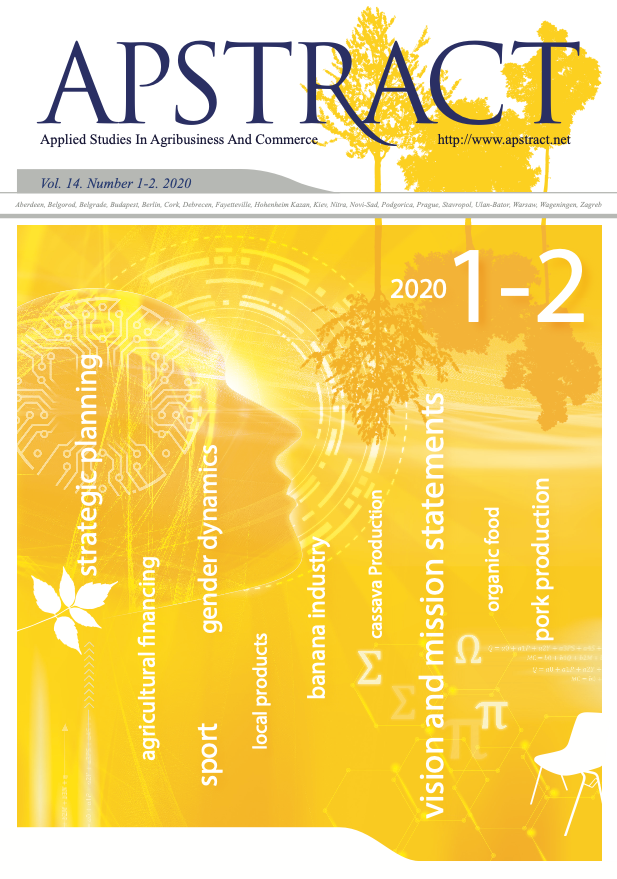Determinants of consumers’ purchase intention for local organic food in Urban Sri Lanka
Author
View
Keywords
License
Copyright (c) 2020 Univesity o f Debrecen, Faculty of Economics and Business, Hungary

This work is licensed under a Creative Commons Attribution-NonCommercial 4.0 International License.
How To Cite
Abstract
Organic food marketing has currently become one of the most developing markets around the world, including Sri Lanka. Thus, the main aim of this study was to recognize the determinants of the purchase intention for local organic food among urban Sri Lankans. A consumer survey was conducted covering capital cities of six urban districts in Sri Lanka; Colombo, Galle, Gampaha, Kandy, Kurunegala, and Rathnapura using a sample of 600 consumers, from December 2016 to May 2018. Out of the 600 consumers, only 114 were purchasing organic food by that time, and those 114 consumers were chosen as the sample for this study. Descriptive statistics, principal component analysis, and multiple linear regressions were used as data analysis techniques. According to the results, majority of the respondents belongs to the 31-45 year age category. While most respondents had an education up to GCE Advanced Level, significant percentages of respondents were educated up to graduate and post-graduate levels. Also, most of the respondents received a monthly total income in between Sri Lankan Rupees 85,001 and 162,000 (approximately US dollars 473 – 900). Although one-fourth of the consumers are purchasing organic food at that time, a higher number is willing to buy them in future. As per the principal component analysis, health and environment consciousness, certification of organic food, marketing aspects of organic food, common parameters of organic food, awareness on the value of organic food, and market availability of organic food were the extracted determinants. The results of multiple linear regressions revealed that market availability, common parameters of organic food, and health and environment consciousness are the dominating variables of the purchase intention of organic food consumers. Thus, expanding the market conditions for organic food, establishing a better marketing system, conducting effective food awareness programs, and value addition for organic food are the identified timely essential recommendations.
JEL CODE: Q13, Q19


 https://doi.org/10.19041/APSTRACT/2020/1-2/9
https://doi.org/10.19041/APSTRACT/2020/1-2/9




